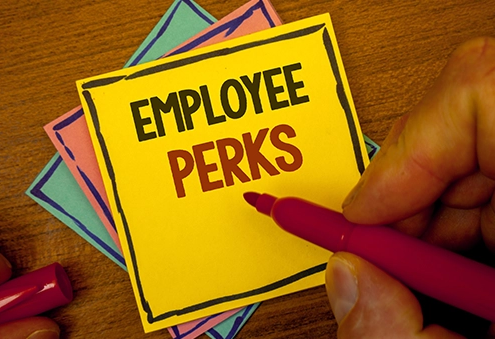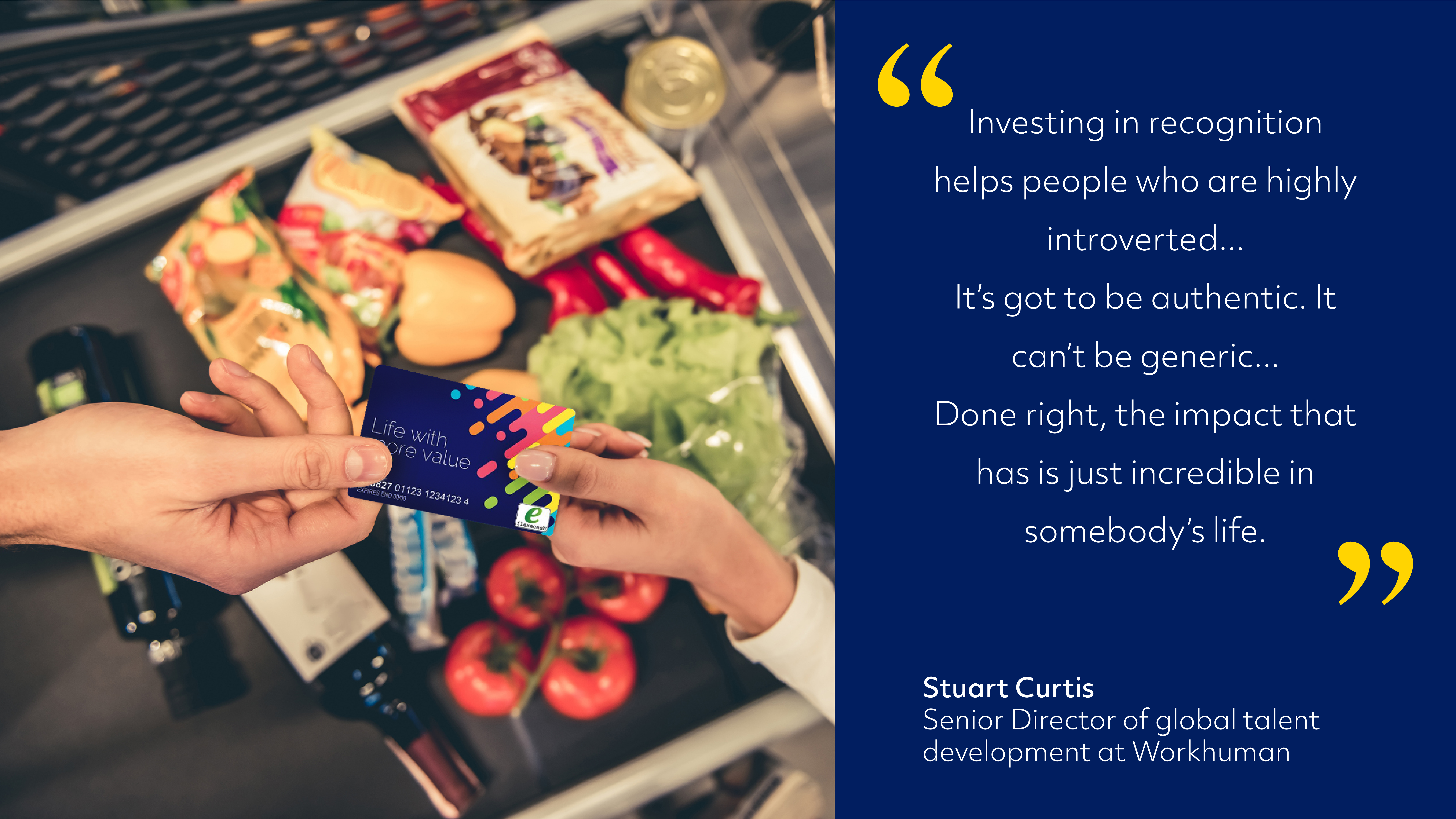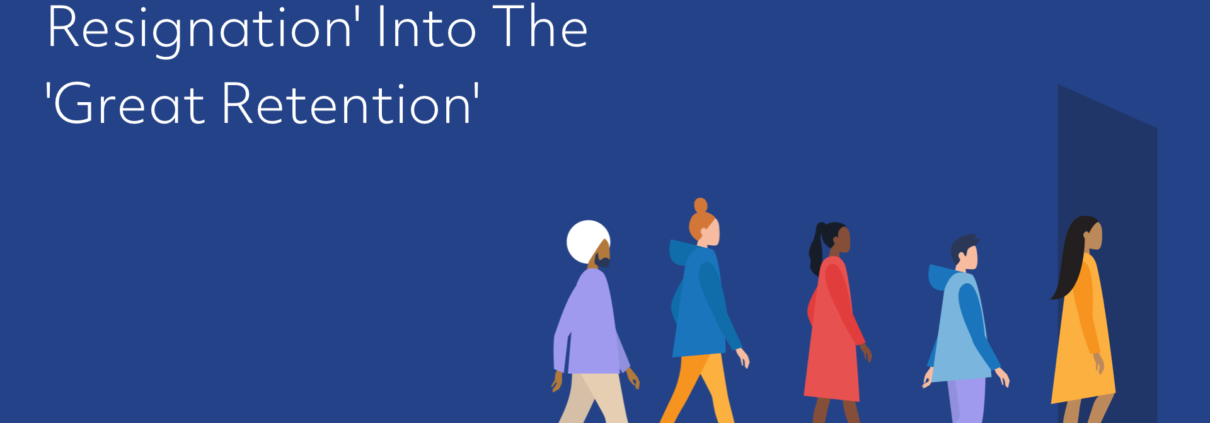Avoid the Christmas rush and plan your rewards now
Although it’s still August and the barbecue may be sizzling in the garden, Christmas is not that far away.
Now is exactly the right time to start planning how you want to recognise the hard work and achievements of your employees at the end of the year.
2023 has been another challenging year for both individuals and businesses across the UK. Although they’ve eased a little, energy prices remain high, helping fuel inflation, making goods and services across the board more expensive.
But thanks in large part to the hard work and imagination of their staff, companies and organisations are weathering the storm. UK employers are showing remarkable resilience through one of the toughest economic periods in decades.
Christmas is a great time to show employees that you appreciate their contribution – this year maybe more than ever. Many businesses typically wait until October, November or even later to start planning Christmas bonuses, gifts or parties for staff. But that old adage ‘it’s the thought that counts’ still holds true. It’s better to plan early and do it properly.
Don’t just give, make staff feel valued
Every savvy husband or wife knows a well-planned gift or surprise is worth a lot more than a bunch of flowers and a card from a petrol station grabbed at the last minute.
The same goes for gifting and rewarding employees. There are different ways employers can think about rewarding their teams this Christmas and, surprisingly, HMRC offers some help in this area.
The Trivial Benefits exemption allows you to give employees tax-free, non-cash gifts of up to £50 per person. So what kind of gifts are we talking about?
The best, most flexible way to give using this provision is gift cards or e-codes. The team at Love2shop Business are the experts in this area. For decades they have been working closely with more than 150,000 employers across multiple sectors, delivering gift card and contactless e-gift card products that allow you to give the gift of choice to your team.
Avoid the Christmas party pressure?
The traditional Christmas party is a festive staple but with the increased cost of living crisis still affecting everyone, would your employees thank you for giving it a miss?
While research from events experts Togather reveals that the average cost-per-head to a business for a works Christmas party is £70, there are deeper costs for your employees to consider.
Even if as an employer you plan to cover the entire cost of a meal, venue hire and drinks, your team will still face the cost of taxis or accommodation, outfits, and other additional expenditure they probably haven’t planned for. The rising cost of living means many find it harder to afford a big night out, so perhaps this year it’s worth looking at a different approach.
Small gifts, big rewards
In 2022, Love2shop published its first Employee Value Report following a UK-wide survey of workers. This found that almost 10m UK workers – around a third of the total workforce – felt undervalued at work.
This coincided with the rise of the phenomenon known as ‘the Great Resignation’. This saw an increasing number of people willing to leave jobs where they didn’t feel appreciated or sufficiently well rewarded.
Consequently, a hefty 74% of dissatisfied employees, according to the study, were ready to up sticks and look for another job.
The good news, however, was that for those employers willing to give a little, the benefits were huge. The report found 76% of employees felt valued or recognised when their employer spontaneously gave them a gift, with 52% adding that the feeling of value it gave them made them more productive.
It also discovered that 60% of employees ranked days off, flexible working and multi-retailer gift cards as the best forms of workplace gifting. They are proven to be a powerful addition to any staff retention strategy.
Love2shop is one of the UK’s leading gifting brands. Offering, gift cards, contactless digital e-gift cards and physical vouchers, Love2shop products are accepted by around 150 retailers nationwide.
These include well-known brands such as Marks & Spencer, Iceland, Matalan, Argos, Costa, Harvester, Tui, Jet2Holidays and many, many more.
Bring some festive cheer
One of the more interesting aspects of the Employee Value Report was an insight into how people used their gift cards – with many putting them towards groceries.
Of course, most will still use them to purchase a treat for themselves or their loved one but it was a sign of the economic climate we are in that using gift cards to help offset the weekly food shop – or even their Christmas dinner!
So planning ahead to ensure your employee Christmas gifts are sorted soon means you can present them earlier. This will help your team plan to reduce the cost of Christmas and bring a whole new dimension to the ‘season of goodwill’. A gift card today is much more than just a token of appreciation. It can provide a lifeline at Christmas, a time of the year when many people find their finances squeezed.
Beat the rush
As we stated earlier, proper planning is essential when it comes to getting rewards right. The closer we get to Christmas, the more lead times and postal pressures can have an impact. There is also a level of expectation from employees today around workplace gifting and appreciation. According to Love2shop retailer Marks & Spencer: “As well as elevated business demands, employee expectations have increased, too.
“Staff are no longer content with a bottle of wine or box of chocolates from their employer at Christmas. They expect to be treated to thoughtful gifts regularly throughout the year – to reward performance, celebrate special occasions and ‘just because’.”
The Love2shop Business team are here to help. Start thinking about your Christmas rewards programme today, even if you are sat on the beach, and get in touch with our team to discuss our range of products and services.
The clock is ticking – the deadline to order Christmas gift cards featuring your own business branding or any personalised features is October 20.
Employers and managers are busy with what is happening today, of course. But that is all the more reason to plan our Christmas rewards in advance and ensure we don’t put ourselves under more pressure as the festive season approaches.
Rewards are a powerful motivator when it comes to productivity and staff retention. Give well thought-out rewards to your team and they are more likely to reward you with a motivated and driven workplace.
For more information or to contact the team visit business.love2shop.co.uk.











 Eggs and flour are regular features on the supermarket shelves again, along with your favourite craft beer and wines. You can even pop out for a pint and see your friends in the park. But the country’s staff aren’t gagging to give up remote working.
Eggs and flour are regular features on the supermarket shelves again, along with your favourite craft beer and wines. You can even pop out for a pint and see your friends in the park. But the country’s staff aren’t gagging to give up remote working. Every week, Group and Human Resources put together a round-up of news and views from around the business and push it out to staff. That might include blogs written by people in our company, surveys to get opinions and feedback from staff about their work and their response to Group efforts, news on how the business is responding to COVID-19 developments, and any human resources developments that might affect staff.
Every week, Group and Human Resources put together a round-up of news and views from around the business and push it out to staff. That might include blogs written by people in our company, surveys to get opinions and feedback from staff about their work and their response to Group efforts, news on how the business is responding to COVID-19 developments, and any human resources developments that might affect staff. Our daily catch-ups give us a chance to see some friendly, familiar faces, talk about what we’re doing inside and outside of work, gripe about some things, gloat about others. It’s also crucial for making sure everyone is on the same page with their tasks.
Our daily catch-ups give us a chance to see some friendly, familiar faces, talk about what we’re doing inside and outside of work, gripe about some things, gloat about others. It’s also crucial for making sure everyone is on the same page with their tasks. You might be thinking “everyone hates meetings though”. Which might be a fair point, but in our experience everyone’s still on time for them, which wasn’t always the case when they were face to face. And they still contribute.
You might be thinking “everyone hates meetings though”. Which might be a fair point, but in our experience everyone’s still on time for them, which wasn’t always the case when they were face to face. And they still contribute.